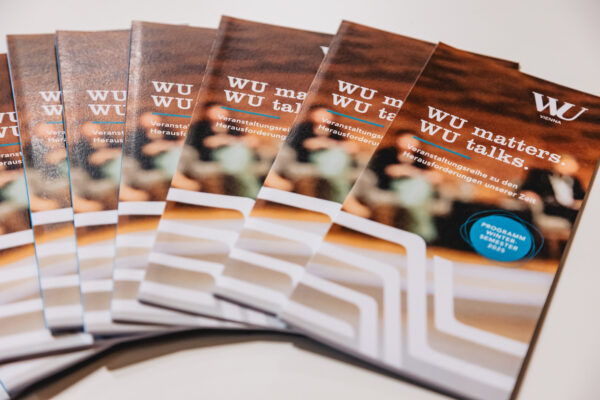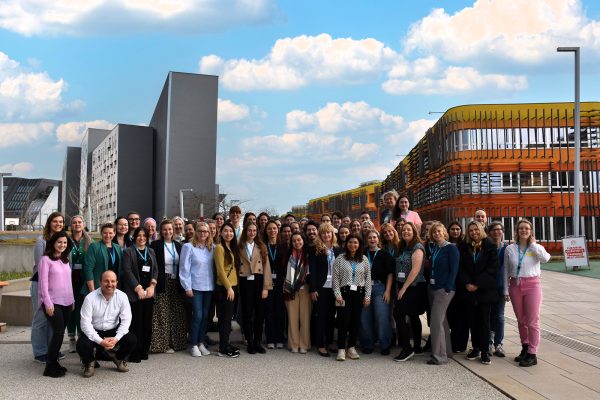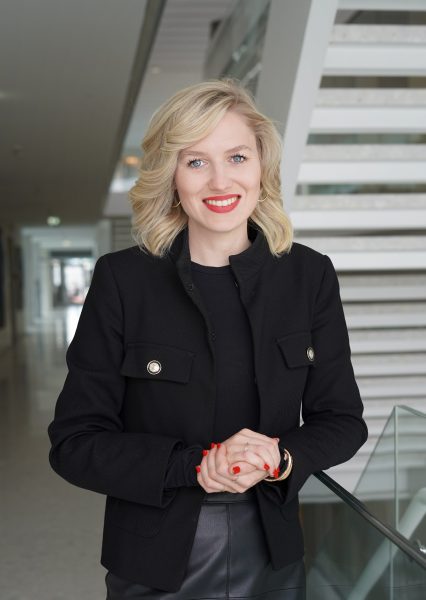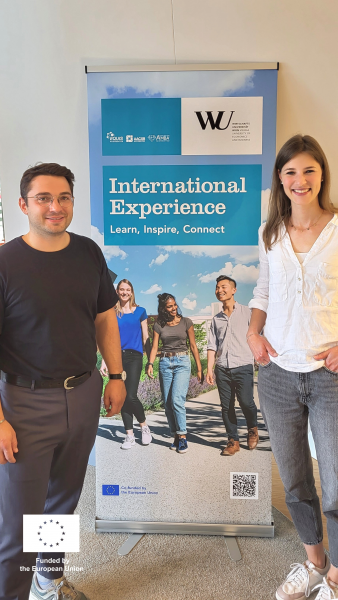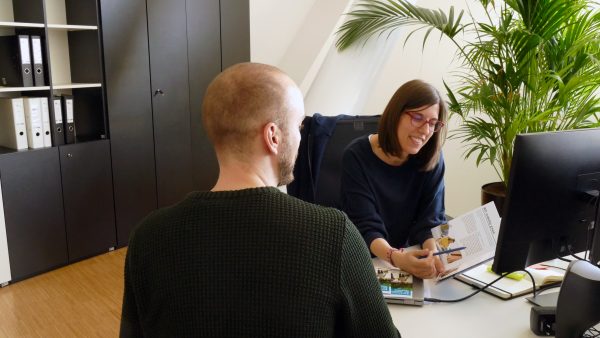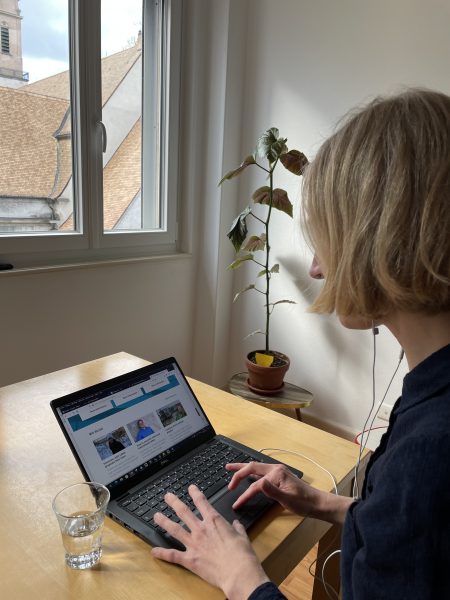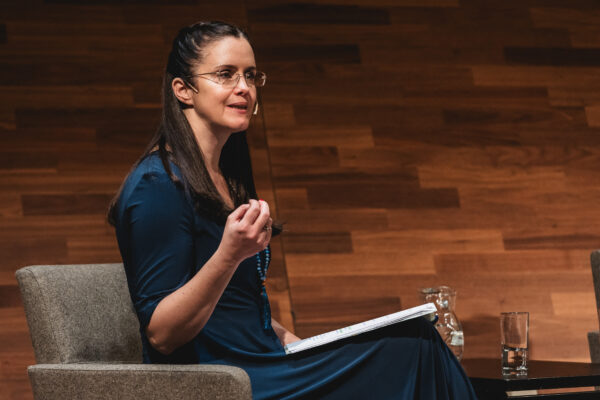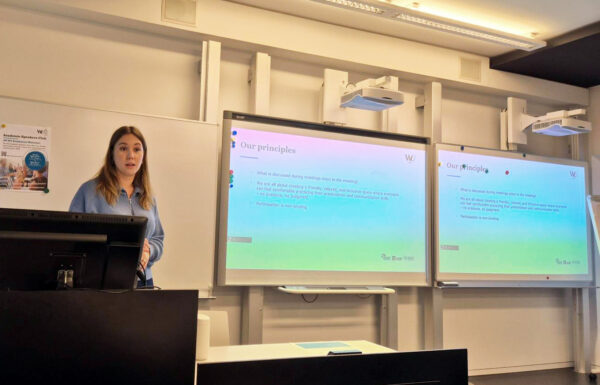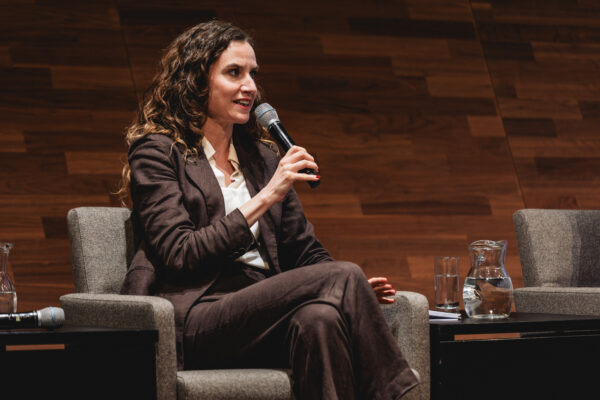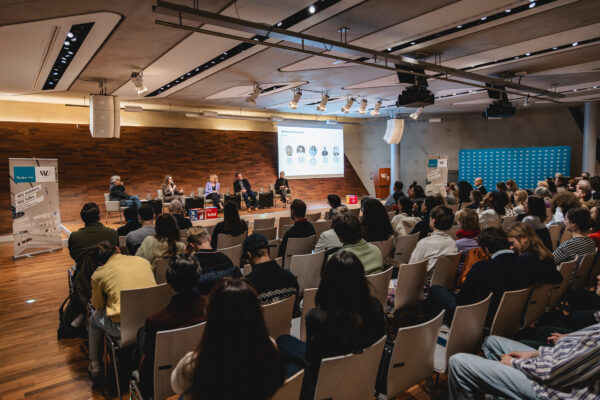How does Austria invest?
In an international comparison, Austria is still a country where people save a lot but invest little in securities. Why is this the case? What opportunities and risks are there? And what should you generally pay attention to when investing your own assets? These questions were discussed as part of “WU mattters. WU talks.” on April 2.
Bettina Fuhrmann, head of the Institute for Business Education at WU, presented the results of a survey of 1,000 Austrians (conducted by the Gallup Institute), which revealed: “International studies by the OECD show that Austrians do not do so badly in terms of general financial knowledge – we are in second place behind Germany. However, our survey shows that this is not reflected in our commitment to securities. Large amounts – an estimated 400 billion euros – are held in low-interest accounts. So we can see that although this knowledge is available, it is not being put into practice.”
Austrians have a high level of financial knowledge, but also uncertainties
So what do Austrians actually know about securities, ETFs and new forms of investment such as cryptos? 72% of respondents do not use these forms of investment at all – probably also because 60% believe they know little to nothing about these topics. It turns out that only 50% of respondents are interested in these topics at all, and only a third think they know enough about them. There is therefore a great deal of uncertainty and the discrepancy between the perceived and actual financial knowledge of those surveyed has an impact on investment and risk behavior.
“People of all ages and educational backgrounds have strong emotional beliefs, ranging from ‘securities are only for rich people’ to ‘you need years of experience to do this’,” Fuhrmann noted. Financial education can counteract this.
Fiona Springer from the Austrian Financial Market Authority (FMA) also confirms that better financial education leads to more investments: “Before the start of the pandemic in 2020, Austrians’ investments in securities were still 20% below the European average. Five years later, we have come closer to this average – what happened?” The research shows: “During the pandemic, there were few opportunities to spend money and at the same time there was a lot of time to deal with the topic of securities and investments,” says Springer.
Pandemic brought changes in investment behavior
From 2020 to 2025, many new investors therefore flocked to the capital market, with 18 to 24-year-olds standing out as the strongest group – the number of young investors has almost doubled since 2020. The fastest-growing product during this period is ETFs. GenZ not only invests more frequently than older groups, it also behaves differently: “The online affinity of GenZ is also evident on the capital market – young people no longer go to the bank and seek advice about their wishes, goals and risks. They trust trading apps, neobrokers and fintechs.”

Vlnr: Stefan Pichler, Vorstand des Institute for Finance, Banking and Insurance; Fiona Springer, FMA – Finanzmarktaufsicht Österreich; Doris Zingl, Leitung Bereich Recht, Bankenverband; Bettina Fuhrmann, Vorständin des Instituts für Wirtschaftspädagogik; Gerhard Hofer, stellvertretender Chefredakteur, Die Presse
Ideally, this not only brings high returns, but also a high level of personal responsibility: “Young people who invest capital in an advisory-free space need to be aware of how high this risk is. We are not sure whether these young people really understand which products they are investing in, how high the risks are and whether their investment goals can even be achieved.”
Beware of online financial fraud
What the FMA has noticed is that fraud via trading apps is now the most frequently recorded form of financial fraud, with victims of such scams losing an average of 44,000 euros. “You shouldn’t believe that you are immune to these scams – it’s worth keeping an eye on the latest tricks used by international financial fraudsters!” warns the FMA expert.

One (unfortunately often successful) online financial fraud scam is called margin fraud and is explained by Springer as follows: Initially, only small amounts of around 250 euros are invested within the app. The victims are then contacted directly by phone or asked to invest more in Telegram or WhatsApp groups. So you send money and suddenly the contact breaks off. After a while, the scammers contact you again and tell you that you can get your money back with an “additional payment”. “An entrepreneur from Austria, for example, lost 1.6 million euros in private assets last year as a result of this scam,” explains Springer.
Plea for strong financial education
Financial knowledge therefore forms the basis for good investments, regardless of gender, age, income or level of education. And this financial education can still be improved for many groups in Austria, including women and young people. “Men are almost twice as likely as women to invest in securities, people with a high school diploma or higher are 1.5 times more likely to invest in securities and those who can prove that they have a good income are 4 times more likely to invest in securities,” says Doris Zingl, Section Head of Legal Affairs at the Austrian Bankers Association.
Further information:
Do you also want to have your say on current topics?
In the regular “WU matters. WU talks.” panel discussions, panel discussions and lectures, academics and experts from business and institutional practice contribute their expertise and discuss current topics together with the interested public. Sign up for the newsletter here to make sure you don’t miss any current topics!







